#construction chemicals
Text
Industrial, Cleaning, Oil Field, Water treatment, Painting, Food, Mining, Construction, Power plant, Ceramic Chemicals Dubai, UAE | Coil cutting Service Dubai, UAE
The chemical industry in Dubai and the United Arab Emirates (UAE) is a vital component of the country's economy, as it is used in a wide range of industries such as construction, manufacturing, and oil and gas. The region is known for its high-quality chemicals, which are exported to various countries worldwide. However, with so many chemical suppliers in the market, it can be challenging to find the right one that meets your needs. This is why it is important to have a reliable and trustworthy chemical supplier that you can count on for all of your chemical needs.
In this blog post, we will discuss the role of chemical suppliers in Dubai and the UAE, the factors to consider when selecting a chemical supplier, and key players in the chemical supplier market. We'll also give tips on how to research and compare chemical suppliers in the region, so you can make an informed decision when choosing the right supplier for your business.
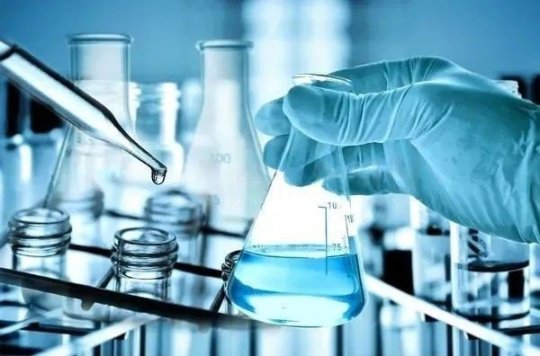
The role of chemical suppliers in Dubai and the UAE
The role of chemical suppliers in Dubai and the UAE is to provide a variety of chemical products to different industries in the region. These products include raw materials, industrial chemicals, and specialty chemicals that are used in a wide range of applications.
Construction industry is one of the major industries that rely on chemical suppliers in Dubai and the UAE. These chemicals are used in the production of construction materials such as cement, concrete, and asphalt. They are also used in the construction process, for example, as a waterproofing agent, fire-resistant coating, and for surface treatment.
Manufacturing industry is another sector that heavily depends on chemical suppliers. Chemicals are used in the production of various products such as plastics, textiles, and pharmaceuticals. These chemicals play a crucial role in the manufacturing process, as they are used as raw materials, catalysts, and intermediates.
Oil and gas industry is also a major user of chemicals. In the exploration, production, and refining process of oil and gas, various chemicals are used. These chemicals are used for drilling, production enhancement, and refining process.
Specialty chemicals are also an important part of the chemical industry in Dubai and the UAE. These chemicals have specific properties and are used for specific applications, such as in the food and beverage industry, personal care products, and agriculture.
In summary, chemical suppliers in Dubai and the UAE play a crucial role in supplying a wide range of chemicals to various industries, which in turn, enables the smooth functioning of these industries, and contributes to the overall economic growth of the region.
Choosing a chemical supplier in Dubai and the UAE
Choosing a chemical supplier in Dubai and the UAE can be a challenging task due to the large number of suppliers in the market. However, by considering the following factors, you can ensure that you select a supplier that meets your needs and provides you with high-quality chemicals at a reasonable price.
Quality: The quality of the chemicals supplied is of utmost importance. Make sure that the supplier has a good reputation in the market and that their chemicals meet the required industry standards.
Price: Compare the prices of different suppliers and choose one that offers competitive prices without compromising on quality.
Customer Service: A good supplier should provide excellent customer service, including timely delivery of products and prompt response to any queries or concerns you may have.
Certifications: Ensure that the supplier is certified by relevant authorities and that their chemicals have passed all necessary safety and quality tests.
Product Range: Check if the supplier has a wide range of products, so you can find all the chemicals you need from a single supplier, which can save you time and money.
Location: It is important to consider the location of the supplier, as this can affect delivery times and costs.
Environmental & Safety Consideration: Consider the supplier's environmental and safety policies, to ensure that the supplier is following the regulations and not impacting the environment negatively.
When researching potential suppliers, it is important to read reviews, check their websites, and ask for references from other businesses that have used their services. By thoroughly researching and comparing different chemical suppliers in Dubai and the UAE, you can make an informed decision and choose a supplier that meets your needs.
Key players in the chemical supplier market in Dubai and the UAE
Dubai and the UAE have a large number of chemical suppliers, but some stand out as key players in the market. Here are a few examples of major chemical suppliers in the region:
Al Rama International: Al Rama International Chemical Suppliers Company in Dubai, UAE. We are Specialized Chemicals Our Service Industrial Chemical, Cleaning Chemical, Oil field Chemical, Water treatment Chemical, Painting Chemical, Food Chemical, Mining Chemical, Construction Chemical, Power plant Chemical, Ceramic Chemical in Dubai, UAE. Al Rama has been a significant player in the G.C.C. & East African chemical trade, for over 20 years. We stock a wide variety of products ranging from food ingredients, oil exploration chemicals, sanitization chemicals, petroleum derivatives and industrial process raw materials. We possess extensive in-house expertise in blending and repacking of various products. Our facilities include open, closed ambient storage, as well as temperature-controlled storage. We operate our own fleet of road tankers, ISO tanks and pick-up trucks, to ensure full supply chain traceability.
Gulf Petrochem Group: Based in Dubai, Gulf Petrochem is a leading supplier of industrial and specialty chemicals in the region. They have a wide range of products, including petrochemicals, base oils, and lubricants. They also have a strong presence in the Africa, Asia, and Europe market.
National Chemical Corporation (NCC): NCC is a well-established chemical supplier based in Abu Dhabi. They have a wide range of products, including specialty chemicals, petrochemicals, and fertilizers. They also have a strong presence in the Africa, Asia, and Europe market.
Emirates National Chemical Industries (ENCI): ENCI is a leading chemical supplier based in Dubai. They have a wide range of products, including petrochemicals, specialty chemicals, and fertilizers. They also have a strong presence in the Africa, Asia, and Europe market.
These are just a few examples of major chemical suppliers in Dubai and the UAE. There are many other suppliers in the market, and it's important to research and compare different suppliers to find the one that best meets your needs.
Conclusion
In conclusion, chemical suppliers play a crucial role in the UAE and Dubai by supplying a wide range of chemicals to various industries. These industries include construction, manufacturing, oil and gas and specialty chemicals. When choosing a chemical supplier in Dubai, UAE, it is important to consider factors such as quality, price, customer service, certifications, product range, location and environmental & safety consideration. The key players in the chemical supplier market in Dubai and the UAE include Gulf Petrochem Group, National Chemical Corporation (NCC), Emirates National Chemical Industries (ENCI), and Al Rama International. By thoroughly researching and comparing different chemical suppliers in Dubai and the UAE, you can make an informed decision and choose a supplier that meets your needs and helps you to run your business efficiently.
#Chemical Suppliers#Industrial Chemicals#Cleaning Chemicals#Oil Field Chemicals#Bulk Chemicals#Water Treatment Chemicals#Painting Chemicals#Food Chemicals#Mining Chemicals#Construction Chemicals#Ceramic Chemicals#Powerplant Chemicals#Coil Cutting Service
2 notes
·
View notes
Text
Expert Solutions for a Water-Resistant Home: Your Guide to Longevity and Aesthetics
Water-resistance is an important feature for your home, as it can protect your home from water damage, and enhance its appearance and performance. There are many expert solutions that can make your home water-resistant, such as waterproofing, sealing, tiling, and painting. You can also find the best products for your water-resistant solutions at 20 mcc, a leading manufacturer and supplier of construction chemicals and materials in India.
#construction chemicals#waterproofing chemicals#waterproofing#waterproofing services#waterproofing contractors#waterproof#roof waterproofing#waterproofingexpert
0 notes
Text
https://sunandaglobal.com/concrete-protection-concrete-knowledge/
0 notes
Text
1 note
·
View note
Text

Jemkon - Best Epoxy Flooring Solution & Service Provider in India.
Epoxy flooring like PU coating, Self leveling, chemical resistance epoxy flooring, etc
We are also manufacturers of construction chemicals.
For more information contact Jemkon.
#epoxyflooring#commercial#waterproofing#industrial#india#carparkflooring#epoxycoating#epoxy flooring#carparking#construction chemicals
0 notes
Text
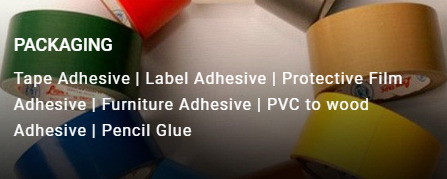
In today's industrial landscape, adhesives play a pivotal role, binding materials together seamlessly and securely. Among the many adhesive manufacturers in India, Jesons Industries Ltd. stands out as a prime example of innovation and excellence in adhesive production. In this blog, we'll delve into the world of adhesive manufacturing in India, highlighting the significance of this industry and shedding light on the exceptional contributions of Jesons Industries Ltd.
#anti-microbial#coating emulsions#construction chemicals#adhesive manufacturers#jesons industries limited
0 notes
Text

Agarwal Buildcare: India's top manufacturer of construction products and chemicals, providing premium waterproofing products and solutions, tile adhesives, roof treatment and floor cleaning for reliable protection against water damage and leaks.
#waterproofing products#waterproofing#tilecleaning#tile floor#construction chemicals#cleaning services#roof treatment#waterproofing company
0 notes
Text
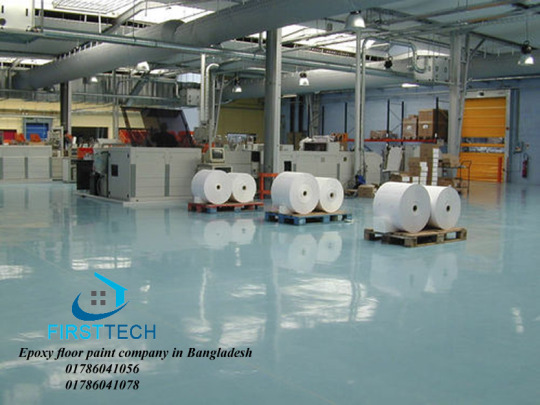
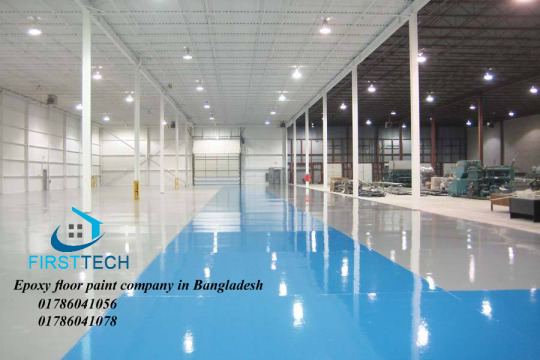
Polyurethane Flooring: The Ultimate Solution for Heavy Duty Industrial Flooring - FIRSTTECH BD
#construction chemicals#flooring construction chemicals#chemicals like waterproofing#residential flooring construction chemicals#construction chemicals like waterproofing
1 note
·
View note
Text
Tips for Restoring Old Tiles: Reviving the Beauty of Vintage Flooring
Vintage tiles can add a touch of timeless elegance to any space, be it a historic home or a modern apartment. However, over time, these treasured tiles may lose their luster due to wear and tear. Restoring old tiles requires careful attention and a gentle touch to revive their original beauty without causing any damage. In this article, we'll provide you with Yoast-approved tips for restoring old tiles, helping you bring back the charm of vintage flooring and preserve its allure for years to come.
Assess the Condition of the Tiles
Before diving into the restoration process, it's essential to assess the current condition of the tiles. Check for any cracks, chipping, or missing pieces. Determine the type of tile material, as different materials may require specific restoration techniques. Assessing the state of the tiles will help you plan the restoration process accordingly and set realistic expectations.
Thorough Cleaning
The first step in restoring old tiles is a thorough cleaning to remove years of dirt, grime, and old sealant. Start by sweeping or vacuuming the tiles to get rid of loose debris. Next, use a mild detergent or a pH-neutral tile cleaner mixed with warm water to gently clean the surface. Avoid harsh chemicals that may damage the tiles. For stubborn stains, make a paste with baking soda and water and apply it to the affected areas. Let it sit for a few minutes before scrubbing with a soft brush.
Repairing Cracks and Chips
To restore the tiles to their former glory, addressing cracks and chips is crucial. Use a high-quality tile filler or epoxy resin to repair minor cracks and chips. Fill the damaged areas carefully and smooth out the surface with a putty knife. Allow sufficient drying time before proceeding with the next step.
Removing Old Sealant
Old tiles are often protected with layers of sealant, which can become discolored and dull over time. Removing the old sealant is essential before applying a new one. Use a sealant remover or a mixture of equal parts vinegar and water to dissolve the old sealant. Be patient, as this process may take some time. Once the old sealant is removed, clean the tiles again to ensure a fresh surface for the new sealant.
Restoring Grout Lines
Grout plays a crucial role in vintage tile restoration. Inspect the grout lines for any signs of mold or discoloration. Use a grout cleaner or a mixture of baking soda and water to clean the grout lines thoroughly. For severe grout issues, consider regrouting the entire floor. Choose a grout color that complements the tiles and gives them a refreshed appearance.
Applying New Sealant
After cleaning and repairing the tiles, it's time to apply a new sealant to protect and enhance their beauty. Choose a high-quality, breathable sealant suitable for the tile material. Apply the sealant evenly using a clean cloth or brush, following the manufacturer's instructions. Allow the sealant to dry completely before walking on the restored floor.
Conclusion
Restoring old tiles is a labor of love that rewards you with a stunning and timeless vintage flooring. By following these Yoast-approved tips, you can successfully revive the beauty of vintage tiles and create an exquisite backdrop for your living spaces. Remember to take your time, use gentle cleaning methods, and choose high-quality products for the best results. With proper care, your restored vintage tiles will continue to charm and delight for generations to come.
1 note
·
View note
Text
Power tools In UAE | Hand tool set In UAE
Discover the Best power tools in UAE with our hand tool set, perfect for all your DIY needs
0 notes
Text
Concrete Admixtures: Uses and Applications

Concrete admixtures are materials that are added to the concrete mix before or during the mixing process to enhance the performance of the concrete. These materials are added to the mix in small quantities and are used to achieve a variety of desired effects, including increased strength, improved workability, and increased resistance to certain types of weather and other environmental conditions.
Types of chemical admixtures for concrete
Water-reducing admixtures
One of the most common types of concrete admixture is a water-reducing admixture, which is used to reduce the amount of water needed to achieve a certain level of workability in the concrete mix. This is important because too much water in the mix can lead to a reduction in the strength and durability of the finished product. Water-reducing admixtures can also improve the flowability of the mix, making it easier to place and finish.
Plasticiser
Another type of concrete admixture is a plasticizer, which is used to increase the workability of the concrete mix without adding water. Plasticizers are particularly useful in situations where the use of additional water is not desirable, such as when the concrete will be placed in a cold weather environment. In these situations, the use of a plasticizer can help to ensure that the concrete remains workable and easy to place, even at lower temperatures.
Air-entraining admixtures
Other types of concrete admixtures include air-entraining agents, which are used to improve the freeze-thaw resistance of the concrete by adding tiny air bubbles to the mix. These air bubbles help reduce the amount of damage the concrete can suffer when subjected to repeated freezing and thawing cycles. Air-entraining agents are particularly useful in cold-weather regions where freeze-thaw cycles are common.
Accelerating admixtures
These are another type of concrete admixture that is used to speed up the rate of hardening of the concrete. These admixtures are often used in situations where a rapid set time is required, such as when the concrete will be subjected to heavy traffic or when the weather is cold. Accelerating admixtures can also be used to help ensure that the concrete reaches its desired strength in a shorter period.
In addition to these types of admixtures, several specialized admixtures are used for specific applications. For example, corrosion-inhibiting admixtures are used to protect steel reinforcement bars in concrete structures from corrosion, while shrinkage-compensating admixtures are used to help prevent cracking in large concrete structures due to shrinkage.
Various applications of concrete admixtures
Chemical admixtures for concrete are used in a variety of different applications, including the construction of roads, bridges, buildings, and other types of infrastructure. They are also used in the production of precast concrete products, such as beams, columns, and walls, as well as in the production of ready-mix concrete.
The use of concrete admixtures can have many benefits, including improved strength and durability, increased workability, and enhanced resistance to certain types of weather and environmental conditions. They can also help to reduce the amount of water and cement needed in the concrete mix, which can lead to cost savings and reduced environmental impacts.
Overall, concrete admixtures are an important tool in the construction industry, and their use is likely to continue to grow as new materials and technologies are developed. Make sure to get only the best from trustworthy construction chemicals suppliers!
1 note
·
View note
Link
#Chemical Suppliers#Industrial Chemicals#Cleaning Chemicals#Oil Field Chemicals#Bulk Chemicals#Water Treatment Chemicals#Painting Chemicals#Food Chemicals#Mining Chemicals#Construction Chemicals#Ceramic Chemicals#Powerplant Chemicals#Coil Cutting Service
1 note
·
View note
Text
Different Types of Construction Chemicals and Their Applications
Construction chemicals play a critical role in repair and restoration projects for buildings and infrastructure. These chemicals are designed to enhance the strength, durability, and longevity of structures that have been damaged or degraded over time.
Commonly used construction chemicals for repair and restoration projects include:
Concrete Repair Mortars: Used to repair damaged or deteriorated concrete structures such as bridges, tunnels, and parking structures. These mortars are specially designed to restore the structural integrity of the damaged concrete and prevent further deterioration.
Waterproofing Chemicals: Used to prevent water infiltration and damage to the building's structure. These chemicals can be applied to the exterior of the building or incorporated into the concrete mix.
Grouts: Used to fill voids and cracks in concrete structures, and to anchor bolts or rebar. Grouts are formulated to provide high-strength, low-shrinkage, and excellent bonding properties.
Protective Coatings: Used to protect surfaces from environmental damage, chemical attack, or abrasion. These coatings can be applied to concrete, steel, and masonry surfaces to provide long-lasting protection.
Adhesives: Used to bond new materials to existing structures. Adhesives are formulated to provide excellent bonding strength and durability.
In conclusion, construction chemicals play a vital role in the repair and restoration of buildings and infrastructure. They provide a cost-effective and efficient solution to enhance the durability and longevity of structures, helping to prevent future damage and reduce the need for future repairs.
0 notes
Text
What is Construction chemicals?
Building materials have always been the focal point of construction. Without building materials, construction cannot proceed. Before decorating structures to protect them from weather elements, we should invest in ensuring the basic security of our building.
Construction chemicals are a critical aspect of the construction industry. They are necessary to blend mixtures that are sustainable, durable, and economical. These chemicals have an extensive role to play in the field of construction. These chemicals are used to enhance the quality of building materials in the construction projects to make the project sustainable, durable and economical. Our products help you increase efficiency and protect your structures.
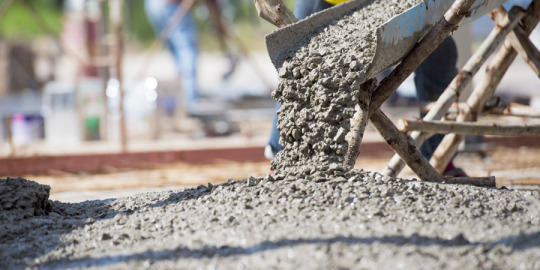
0 notes
Text
0 notes